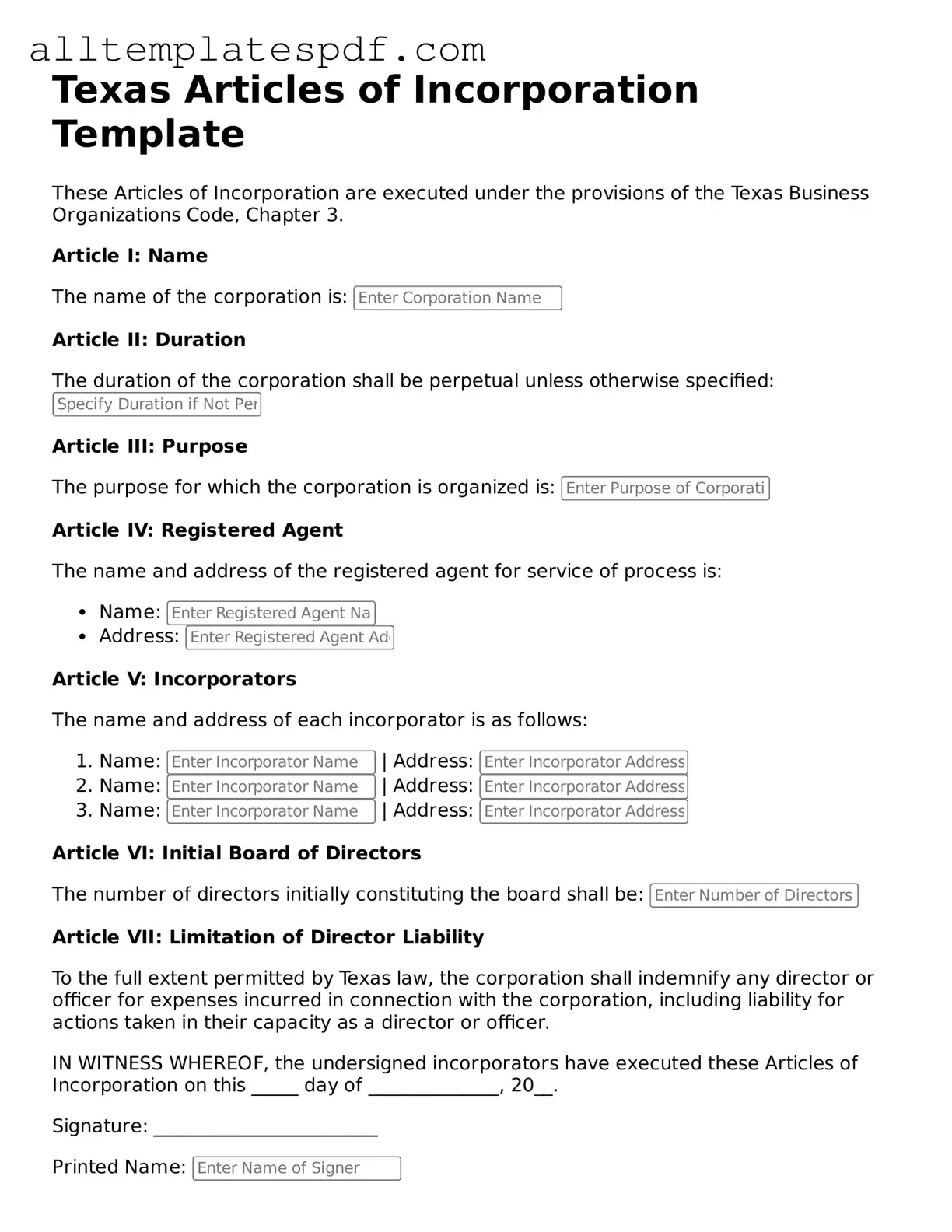Blank Articles of Incorporation Template for the State of Texas
The Texas Articles of Incorporation form is a crucial document that establishes a corporation in the state of Texas. This form outlines essential details about the corporation, including its name, purpose, and structure. Completing this form accurately is vital for legal recognition, so take action now and ensure your business is properly registered by filling out the form below.
Ready to get started? Click the button below to fill out the Texas Articles of Incorporation form.
Open Editor

Blank Articles of Incorporation Template for the State of Texas
Open Editor
Fast and easy form completion
Complete Articles of Incorporation digitally — fast and easy.
Open Editor
or
↓ Articles of Incorporation PDF Form
